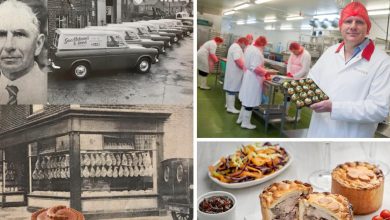Norfolk weddings: Businesses on challenges of 2023 season
It is perhaps no surprise that the wedding industry took a major hit during the pandemic.
In fact, 2020 saw the largest annual decrease ever recorded with the number of marriages falling by 61.0pc – down to 85,770 from 219,850 in 2019.
But with the pandemic seemingly behind us, and social gatherings back in full force, how is our wedding industry faring this year?
Unpredictable prices
According to wedding planner Emily Andrew, who’s helped hundreds of couples across Norfolk and Suffolk pull off their big day, the past couple of years have been a mixed bag.

She said: “Last year was absolutely crazy for a lot of businesses as they tried to catch up with weddings that had to be rearranged due to Covid.
“My work pretty much doubled from a normal year.
“This year has been more manageable, but inflation has made things much more complicated for many of us.”
Part of the issue, she said, is that because weddings are often booked years in advance, the original price quoted for services is now much lower than it should be in relation to the rising cost of materials.
This means businesses are working with ever tighter margins.

She said: “Nobody predicted the huge rise in prices.
“A lot of companies have gone under this year, either because they can’t afford to continue or because of mental health issues arising from the stress.
“There’s been a lot of difficult conversations, especially with my food suppliers, as we try to work out how we can adjust menus so the caterer can still make a profit, without putting the client in a difficult situation.
“It’s been very hard.”
And she said going forward, she predicts contracts will be tightened up to allow suppliers to adjust prices in line with changing inflation.
She added: “Businesses need the protection of being able to say ‘if base rates change X amount, we might have to adjust what we’re charging you’.
“But whether clients will appreciate that, and if businesses will want to play the tough guy, I don’t know.”
‘I’ve been taking the hit’
One business feeling the full force of inflation is baker Stacey Manley, who owns Stacey’s Cakey Bakes in Wymondham.
In the past year, she said the cost of many ingredients had more than doubled, with eggs not only becoming more expensive, but also harder to get hold of due to bird flu.

She said: “I’ve been taking the hit but going forward there’s no way I can guarantee clients a price, because the cost of everything is changing so rapidly.”
What’s more, she said the pandemic had triggered an influx of home bakers deciding to set up their own businesses, with the number of bakeries in the town doubling.
She said: “Of course that creates more competition. It puts more pressure on me to have a successful wedding season because I’m not getting the bookings for birthdays that I used to.”
But despite the difficult circumstances, not all businesses are struggling.
Shifting priorities
Andy Davson, a wedding photographer from Norwich, said it had been a great year for bookings, and that he believed the industry was changing rather than slowing down.

He said: “I’ve seen a huge increase in the number of people opting for cheaper, mid-week celebrations.
“Probably about half of all the weddings I’ve shot this year have been on week days, which is very unusual, but it’s a cheaper way of getting married.”
And, he said, guest lists had been slimmer than in previous years.
“We’re seeing a lot more 60 guest weddings, rather than 100 plus, which I think has been driven down by costs.
“But I also think we got used to smaller gatherings during Covid, and people realised it can be just as fun with fewer guests.
“It also frees up funds to spend on extras like entertainment.”
As for whether these trends will stick around once inflation flattens out, the photographer said it was hard to predict.
He added: “Going forward the biggest challenge is the uncertainty.
“At the end of the day, this is a luxury industry, so people are always going to pay their mortgages first.
“Hopefully once inflation comes under control, and peoples’ confidence starts to increase again, we’ll have a better idea of where the industry is headed, and things will be easier for everyone.”
Read the full article here





Thanks for breaking this down into easy-to-understand terms.